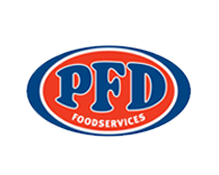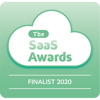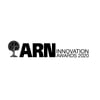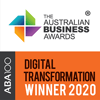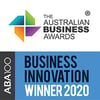Modeling
Modeling is the process of creating models, which are simplified representations of reality.
Modelling is a profession that has been around for centuries and continues to evolve today. It requires an individual to be confident, outgoing, and have the ability to project themselves in different ways depending on their client's needs. In this article we will explore the history of modelling, what it takes to become a model, and how one can excel in such a competitive industry.
The first record of modelling dates back to Ancient Greece where artists used sculptures as models for their artwork. This tradition continued throughout Europe until the 19th century when photography became popular. Photographers began using live models instead of artworks as they could capture more realistic images with movement and perspective. Since then, there has been a rapid transformation in the way modelling is perceived by society due to changes in technology, media platforms and fashion trends.
Today, there are many opportunities available for aspiring models who wish to pursue this career path. With hard work and dedication, any individual can achieve success in this competitive field if they possess the right qualities; creativity, confidence, versatility along with having strong communication skills are essential traits needed to thrive within the industry. Furthermore, establishing relationships with clients both online and offline remains integral for maintaining longevity within this ever-changing market.
What Does Modelling Mean?
Modelling is a form of analysis that allows for the study and prediction of systems, which can range from physical phenomena to financial markets. It also involves creating abstract representations of real-world objects or processes by using data modelling techniques such as object-oriented modelling and object relational models. Modelling helps scientists understand complex systems more accurately by allowing them to identify relationships between variables in an environment.
In addition to its scientific applications, modelling is often used in the development of software applications and databases. Relational data model provides a way to store and access information within a database. This type of model uses tables with columns representing different attributes associated with each row, thus providing users with efficient ways to query and manipulate data stored in the database. Additionally, mathematical modelling and simulation are important components of modern engineering design process; they allow engineers to test designs virtually before constructing them physically. Scientific modelling has become increasingly popular among researchers due to its ability to reduce complexity into manageable parts while retaining accuracy.
The use of modelling has grown exponentially over time due to advances in computing power and technology, enabling better predictions about future events based on previous experiences. In this way, it has provided invaluable insights into numerous fields such as finance, medicine, operations research and economics where understanding complex systems is essential for making informed decisions or predicting outcomes. Thanks to these advancements, organisations have been able to make better decisions regarding investments or long-term strategies through accurate forecasting of potential risks or benefits associated with their actions.
What Are The 4 Types Of Modelling?
Modelling is a term used to describe the process of presenting, creating and displaying an idea or concept. It has many different meanings and forms as it is used in various industries such as fashion, economics and technology. This article will explore the four main types of modelling: data modelling, modelling language, runway model, male model, commercial models.
Data modelling involves using mathematical equations and algorithms to create simulations of real-world situations or systems so that they can be studied. Modelling languages provide the ability to express ideas and concepts in a structured way for easy understanding by machines. Runway models are those who appear on catwalks to showcase clothing collections from designers. Male models are also engaged in this profession but may have other roles such as attending photo-shoots for print media campaigns or commercials. Commercial models are employed for advertising purposes; they feature in television adverts and magazines promoting specific products or services.
To understand the origin and meaning of model the verb, one must look back at its etymology dating back centuries ago when it was first coined by Plato to refer to representing something else through imitation or abstraction. Today, economic modelling is a popular form of financial analysis which uses numerical techniques with formulas that represent how certain variables interact with each other within an economy. Modelling world refers to the industry encompassing all aspects surrounding fashion runways such as casting agents, designers and photographers while ‘model behaviour’ simply means setting good examples for others to follow without any expectations of reward. Overall, there are numerous ways in which modelling manifests itself depending on the context – whether academic or professional – yet all these definitions revolve around representation through mimicry or abstraction.
What Software Is Used For Modelling?
Modelling is the process of creating models from data to control machines and analyse problems. It involves using various techniques such as machine learning, artificial intelligence, statistical modelling, deep learning, and natural language processing. Data modelling techniques are used to create effective models for a variety of applications including engineering design, simulation, computer graphics, machine operators training, and more.
In addition to its use in technical fields, modelling can also be found in everyday life through modelling agencies which promote fashion and lifestyle products alongside other services. There are four main types of modelling: product, architectural/engineering design (AED), face-to-face (FTF) and virtual reality or augmented reality (VR/AR). Each type has different methods depending on the goal they want to achieve. For example, product modelling uses 3D printing technology while FTF uses human interaction with the client's brand. Additionally, VR/AR makes use of interactive technologies that allow users to explore an environment virtually.
Examples of modelling include video games where players have simulated experiences and cars whose motion is controlled by programmed algorithms based on data collected from sensors. In industrial settings as well as in scientific research projects like climate change analysis and drug discovery simulations take place through advanced computational software tools applied to large datasets and complex mathematical equations. These examples demonstrate how powerful software tools can be when used properly for modelling purposes – allowing businesses or researchers to make predictions about future outcomes or develop new solutions efficiently. Modelling can help us understand the world better by providing visual representations of otherwise abstract concepts thus making them easier to comprehend at both individual level and across organisations.
Which Software Is Best For Product Modelling?
Product modelling is a process of creating simulations and representations of products to be used in the market. It involves collecting data, analysing it and then using software to create models that can help predict outcomes or give insights into economic trends. Data modelling, entity relationship databases and database models are all tools used in product modelling.
The best software for product modelling depends on what kind of model you’re looking to create—whether it’s current year modelling reports or previous year modelling reports, understanding trend lines over time etc.—but there are some common terms used around the world when discussing which software package will suit your needs best. Modelling agencies often use different packages depending on their individual requirements, but generally speaking they tend to focus on programs like MATLAB, SAS Enterprise Miner and SPSS Modeler.
Software such as these offer features ranging from predictive analytics to machine learning algorithms designed specifically for modelling purposes; allowing experts to accurately assess market conditions before investing resources into developing certain products. Users also have access to comprehensive libraries with many datasets already preloaded for reference purpose, providing an excellent starting point for anyone new to product modelling who wants to start building accurate models right away.
What Is The Most Popular 3D Modelling Software?
3D modelling is a popular software tool used in the design and creation of digital objects. The ability to create realistic models using this technology has been leveraged by many industries across the globe, including gaming, engineering, architecture, manufacturing, film production and more. 3D modelling software can be used for creating digital characters, landscapes or any type of virtual environment that you need. The use of British English is one factor that sets this software apart from other formats.
The range of applications available on the market today makes it difficult to determine which is the most popular 3D modelling software. Conceptual Modelling tools are often preferred as they offer users more flexibility and control over their projects than economic modelling systems do. This allows creators to better customise their work according to their needs. Additionally, there are some new global climate change agreements being made with Australian action that may further increase the demand for these types of platforms.
One way to find out which 3D modelling software program is the most widely-used would be to research reviews online or ask industry professionals directly. Related information about each platform can also help make an informed decision when selecting a suitable product. It's important to check external links such as declarations of interests prior to making any purchase decisions so you know what kind of support (if any) will be provided should things go wrong during your project's lifespan. Ultimately choosing the best D Modelling Software for your specific requirements could mean all the difference between success and failure
Conclusion
Modelling is an essential part of any design process. It allows designers to create digital representations of their ideas and test them before they are put into production. There are four main types of modelling, namely surface, solid, mesh and parametric models. Software such as AutoCAD, Blender and Maya are used for creating 3D models while popular product modelling software includes Solidworks and Fusion 360.
In terms of 3D modelling software the most popular choice is Autodesk Maya. This high-end application offers a range of powerful tools that allow users to quickly create detailed 3D models with realistic textures and lighting effects. Additionally, it has many features which make it ideal for animation projects or virtual reality applications.
Regardless of the type or purpose of modelling being carried out, having access to appropriate software is essential in order to achieve desired results. To ensure successful modelling outcomes, designers need to select suitable programs based on the complexity and scope of their project as well as its budget requirements.
PREVIOUS NARROW AI GLOSSARY TERM
NEXT NARROW AI GLOSSARY TERM
Modeling Definition
Exact match keyword: Modeling N-Gram Classification: Statistical modelling, Predictive modelling Substring Matches: Model, Modelling Long-tail variations: "Statistical modelling", "Predictive modelling" Category: Mathematics, Statistics Search Intent: Research, Solutions, Information Keyword Associations: Machine Learning, Data Science, Reinforcement Learning Semantic Relevance: Machine Learning, Data Science, Artificial Intelligence Parent Category: Mathematics Subcategories: Statistics, Probability Theory Synonyms: Machine Learning, Data Science Similar Searches : Artificial Intelligence , Algorithms Geographic Relevance : Global Audience Demographics : Business Professionals , Students , Researchers Brand Mentions : IBM , Microsoft , SAS Industry-specific data : Regression models , Classification Models , Clustering Algorithms Commonly used modifiers : "statistical" , "predictive" , "machine learning" Topically relevant entities : Machine Learning , Data Science , Artificial Intelligence , Regression Models , Classification Models."Larry will be our digital expert that will enable our sales team and add that technological advantage that our competitors don't have."
Kerry Smith
CEO, PFD Foods
$1.6 billion in revenue 
"Lion is one of Australasia’s largest food and beverage companies, supplying various alcohol products to wholesalers and retailers, and running multiple and frequent trade promotions throughout the year. The creation of promotional plans is a complicated task that requires considerable expertise and effort, and is an area where improved decision-making has the potential to positively impact the sales growth of various Lion products and product categories. Given Complexica’s world-class prediction and optimisation capabilities, award-winning software applications, and significant customer base in the food and alcohol industry, we have selected Complexica as our vendor of choice for trade promotion optimisation."
Mark Powell
National Sales Director, Lion
"At Liquor Barons we have an entrepreneurial mindset and are proud of being proactive rather than reactive in our approach to delivering the best possible customer service, which includes our premier liquor loyalty program and consumer-driven marketing. Given Complexica’s expertise in the Liquor industry, and significant customer base on both the retail and supplier side, we chose Complexica's Promotional Campaign Manager for digitalizing our spreadsheet-based approach for promotion planning, range management, and supplier portal access, which in turn will lift the sophistication of our key marketing processes."
Richard Verney
Marketing Manager
Liquor Barons

"Dulux is a leading marketer and manufacturer of some of Australia’s most recognised paint brands. The Dulux Retail sales team manage a diverse portfolio of products and the execution of our sales and marketing activity within both large, medium and small format home improvement retail stores. We consistently challenge ourselves to innovate and grow and to create greater value for our customers and the end consumer. Given the rise and application of Artificial Intelligence in recent times, we have partnered with Complexica to help us identify the right insight at the right time to improve our focus, decision making, execution, and value creation."
Jay Bedford
National Retail Sales Manager
Dulux

"Following a successful proof-of-concept earlier this year, we have selected Complexica as our vendor of choice for standardizing and optimising our promotional planning activities. Complexica’s Promotional Campaign Manager will provide us with a cloud-based platform for automating and optimising promotional planning for more than 2,700 stores, leading to improved decision-making, promotional effectiveness, and financial outcomes for our retail stores."
Rod Pritchard
Interim CEO, Metcash - Australian Liquor Marketers
$3.4 billion in revenue 
"After evaluating a number of software applications and vendors available on the market, we have decided to partner with Complexica for sales force optimisation and automation. We have found Complexica’s applications to be best suited for our extensive SKU range and large set of customers, being capable of generating recommendations and insights without burdening our sales staff with endless data analysis and interpretation.
Aemel Nordin
Managing Director, Polyaire
"DuluxGroup is pleased to expand its relationship with Complexica, a valued strategic partner and supplier to our business. Complexica’s software will enable DuluxGroup to reduce the amount of time required to generate usable insights, increase our campaign automation capability, personalise our communications based on core metrics, and close the loop on sales results to optimise ongoing digital marketing activity."
James Jones
Group Head of CRM, DuluxGroup
"Instead of hiring hundreds of data scientists to churn through endless sets of data to provide PFD with customer-specific insights and personalised recommendations, Larry, the Digital Analyst® will serve up the answers we need, when we need them, on a fully automated basis without the time and manual processes typically associated with complex analytical tasks.”
Richard Cohen
CIO, PFD Foods
$1.6 billion in revenue 
"As a global innovator in the wine industry, Pernod Ricard Winemakers is always seeking ways to gain efficiencies and best practices across our operational sites. Given the rise of Artificial Intelligence and big data analytics in recent times, we have engaged Complexica to explore how we can achieve a best-in-class wine supply chain using their cloud-based software applications. The engagement is focused on Australia & New Zealand, with a view to expand globally."
Brett McKinnon
Global Operations Director, Pernod Ricard Winemakers
"70% - 80% of what we do is about promotional activity, promotional pricing -- essentially what we take to the marketplace. This is one of the most comprehensive, most complex, one of the most difficult aspect of our business to get right. With Complexica, we will be best in class - there will not be anybody in the market that can perform this task more effectively or more efficiently than we can."
Doug Misener
CEO, Liquor Marketing Group
1,400+ retail stores 
"The key thing that makes such a difference in working with Complexica is their focus on delivering the business benefits and outcomes of the project."
Doug Misener
CEO, Liquor Marketing Group
1,400+ retail stores 
"Australia needs smart technology and people, and it has been a great experience for me to observe Complexica co-founders Zbigniew and Matt Michalewicz assemble great teams of people using their mathematical, logic, programming, and business skills to create world-beating products. They are leaders in taking our bright graduates and forging them into the businesses of the future."
Lewis Owens
Chairman of the Board, SA Water 
"Having known the team behind Complexica for some years ago now, I am struck by their ability to make the complex simple - to use data and all its possibilities for useful purpose. They bring real intelligence to AI and have an commercial approach to its application."
Andrew McEvoy
Managing Director, Fairfax Media - Digital 
"I have worked with the team at Complexica for a number of years and have found them professional, innovative and have appreciated their partnership approach to delivering solutions to complex problems."
Kelvin McGrath
CIO, Asciano 
“Working with Complexica to deliver Project Automate has been a true partnership from the initial stages of analysis of LMG’s existing processes and data handling, through scoping and development phase and onto delivery and process change adoption. The Complexica team have delivered considerable value at each stage and will continue to be a valued partner to LMG."
Gavin Saunders
CFO, Liquor Marketing Group 
“Complexica’s Order Management System and Larry, the Digital Analyst will provide more than 300 Bunzl account managers with real-time analytics and insights, to empower decision making and enhanced support. This will create more time for our teams to enable them to see more customers each day and provide the Bunzl personalised experience.”
Kim Hetherington
CEO, Bunzl Australasia 
"The team behind Complexica develops software products that are at the cutting edge of science and technology, always focused on the opportunities to deliver a decisive competitive edge to business. It has always been a great experience collaborating with Matthew, Zbigniew and Co."
Mike Lomman
GM Demand Chain, Roy Hill Iron Ore 
"The innovations that the Complexica team are capable of continue to amaze me. They look at problems from the client side and use a unique approach to collaborating with and deeply understanding their customers challenges. This uniquely differentiates what they bring to market and how they deliver value to customers."
John Ansley
CIO, Toll Group 
"Rather than building out an internal analytics team to investigate and analyse countless data sets, we have partnered with Complexica to provide our sales reps with the answers they need, when they need them, on a fully automated basis. We are excited about the benefits that Larry, the Digital Analyst will deliver to our business.”
Peter Caughey
CEO, Coventry Group 
“Complexica’s Order Management System and Larry, the Digital Analyst will provide more than 300 Bunzl account managers with real-time analytics and insights, to empower decision making and enhanced support. This will create more time for our teams to enable them to see more customers each day and provide the Bunzl personalised experience.”
Kim Hetherington
CEO, Bunzl Australasia 
"After an evaluation process and successful proof-of-concept in 2016, we have chosen to partner with Complexica to upgrade the technological capability of our in-field sales force. The next-generation Customer Opportunity Profiler provided by Complexica will serve as a key tool for sales staff to optimise their daily activities, personalise conversations and interactions with customers, and analyse data to generate actionable insights."
Stephen Mooney
Group Sales Capability Manager, DuluxGroup
$1.7 billion in revenue
"After evaluating a number of software systems available in the marketplace, we have ultimately selected Complexica as our vendor of choice for sales force automation and CRM. Given the large SKU range we carry and very long tail of customers we serve, Complexica’s applications are best suited to deal with this inherent complexity without burdening our staff with endless data entry."
Nick Carr
CEO, Haircaire Australia
Australia's largest distributor of haircare products
“Asahi Beverages is Australia’s largest brewer, supplying a leading portfolio to wholesalers and retailers, including some of Australia’s most iconic brands. Last year Asahi Beverages acquired Carlton & United Breweries, which is its Australian alcohol business division. To harness the strength of our expanded portfolio, we partner with our customers to run multiple and frequent trade promotions throughout the year, delivering long-term growth for both our business and theirs. Given the inherent complexity in optimising promotional plans and our continued focus on revenue and growth management, we have selected Complexica as our vendor of choice after a successful Proof-of-Concept of its world-class optimisation capabilities.”
Kellie Barnes
Group Chief Information Officer
Asahi Beverages
"Dulux is a leading marketer and manufacturer of some of Australia’s most recognised paint brands. The Dulux Retail sales team manage a diverse portfolio of products and the execution of our sales and marketing activity within both large, medium and small format home improvement retail stores. We consistently challenge ourselves to innovate and grow and to create greater value for our customers and the end consumer. Given the rise and application of Artificial Intelligence in recent times, we have partnered with Complexica to help us identify the right insight at the right time to improve our focus, decision making, execution, and value creation."
Jay Bedford
National Retail Sales Manager, DuluxGroup
"At Liquor Barons we have an entrepreneurial mindset and are proud of being proactive rather than reactive in our approach to delivering the best possible customer service, which includes our premier liquor loyalty program and consumer-driven marketing. Given Complexica’s expertise in the Liquor industry, and significant customer base on both the retail and supplier side, we chose Complexica's Promotional Campaign Manager for digitalizing our spreadsheet-based approach for promotion planning, range management, and supplier portal access, which in turn will lift the sophistication of our key marketing processes."
Richard Verney
Marketing Manager, Liquor Barons








